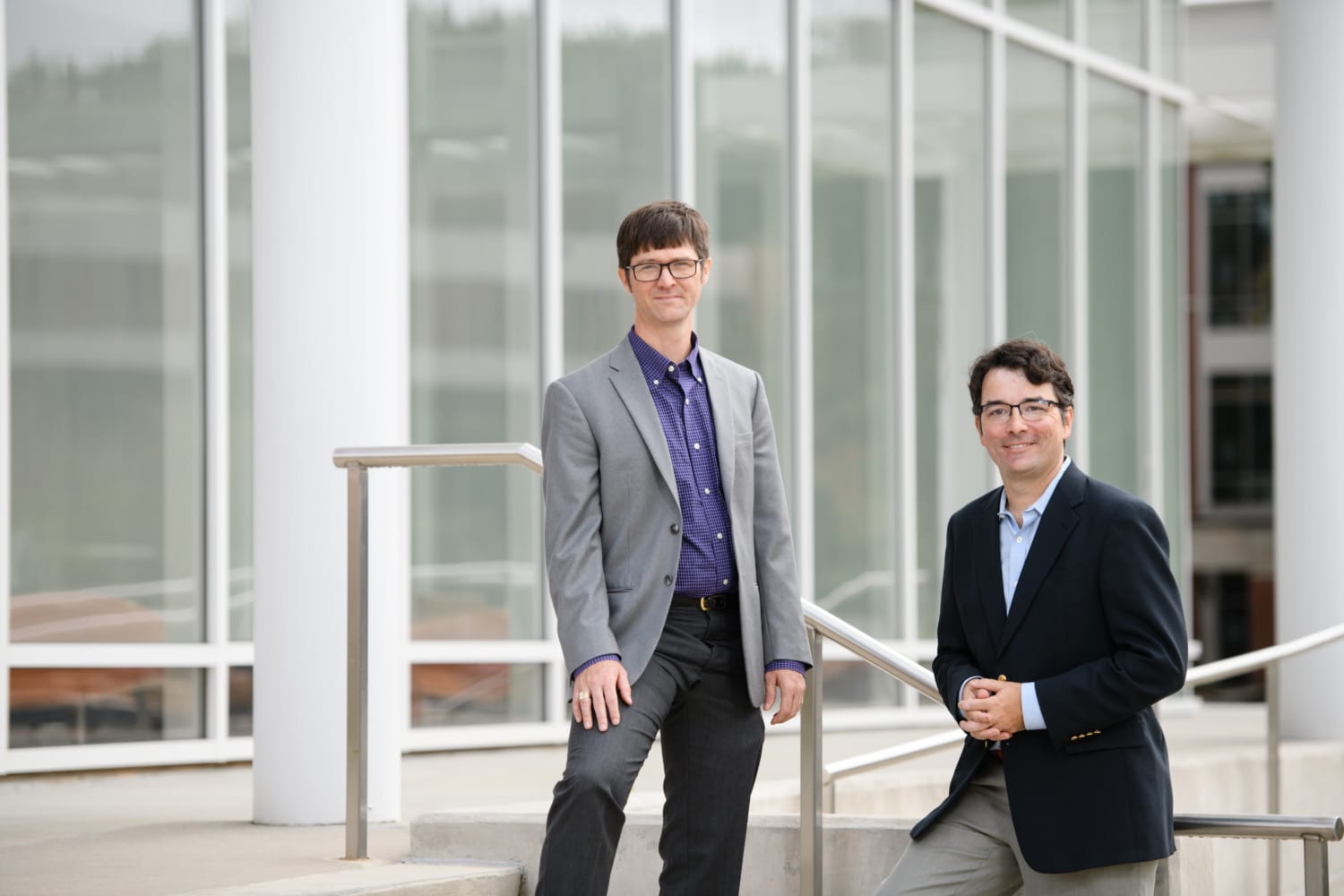The fight against online disinformation is getting a boost thanks to a $3.8 million grant from the John S. and James L. Knight Foundation to support Clemson University’s Media Forensics Hub at the Watt Family Innovation Center.
Researchers with the Hub study disinformation and inauthenticity online and create tools to educate people and stop the spread of disinformation. Clemson University is matching the grant, making the total investment in the Hub $7.6 million over the next four years. This funding will allow the Hub to hire four more faculty in different disciplines — psychology, communication, marketing and computer science — to each bring their unique perspectives and expertise to the issue. The grant will also fund technology infrastructure for the Hub, as well as graduate assistants and postdoctoral researchers.
“I am very proud of the work that the Media Forensics Hub is doing to fight disinformation and online deception, and I am grateful to the Knight Foundation for their incredible support,” said Clemson University President Jim Clements. “The mission of the Hub is to help inform and protect the public from disinformation, and this fits perfectly with Clemson’s land grant mission to serve the people of South Carolina and the nation. I am excited to see the Hub grow and make an even bigger impact in this in the future.”
“Our vision is to foster a field of inquiry that engages broad swaths of society, with the common good as a north star. We are thrilled to add the Media Forensics Hub at Clemson University to our growing community of research centers across the U.S. It’s an investment that will support the Hub’s research on online disinformation and its work to promote better societal resilience to information threats.”
Knight Foundation President Alberto Ibargüen
The Media Forensics Hub is an interdisciplinary team of researchers working to not only study disinformation online but to also develop tools and educate people to recognize it and to stop it from spreading. The team began as a partnership in 2017 between Darren Linvill, associate professor of communication, and Patrick Warren, associate professor of economics, who worked together to uncover and expose more than 3 million tweets by Russian trolls. The Media Forensics Hub was launched in May 2020 with the support of the Watt Family Innovation Center and sponsorship from the South Carolina Research Authority. Since then, the Hub has created the Spot the Troll quiz, where people can test their own ability to spot online trolls and inauthentic social media accounts. They are also part of a collaboration with several other universities to help fight online scams that target older adults. That project recently received $5 million in funding from the National Science Foundation.
The Knight Foundation grant will more than double the size of the Hub’s research team.
“This funding is going to allow us to significantly expand our capacity, to move our work into new disciplines, to build greater expertise here at Clemson and in this field as we teach the next generation of scholars and practitioners studying disinformation,” said Linvill.
Warren said the Hub’s interdisciplinary nature was “accidental” at first, because he and Linvill just happened to be in different disciplines when they started working together. With this new funding, they are able to be much more intentional about which disciplines to bring into what they are calling “Hub 2.0.”
“I think that’s unusual,” Warren said, “If you look around at other places that are doing this kind of work, most of them are still in the ‘accidental’ interdisciplinary stage, if they’re interdisciplinary at all.”
Linvill and Warren believe that the Knight Foundation’s support will make Clemson one of the top institutions in the world for research on disinformation and inauthenticity online.
“I think the world is still getting used to functioning in a digital space,” said Linvill. “Bad actors are taking advantage of people who aren’t digital natives, who didn’t grow up using computers. They are taking advantage of the fact that social media platforms are still learning how to deal with disinformation. These platforms are still writing the policies on how to fight it and build the mechanisms and tools with which to fight it. This is important right now because it’s still so new. This is the new reality that we live in, and we have to prepare society to live in that reality.”
With the new faculty hires, the Hub will span three of Clemson’s seven colleges — the Wilbur O. and Ann Powers College of Business; the College of Behavioral, Social and Health Sciences; and the College of Engineering, Computing and Applied Science.
About the John S. and James L. Knight Foundation
We are social investors who support democracy by funding free expression and journalism, arts and culture in community, research in areas of media and democracy, and in the success of American cities and towns where the Knight brothers once had newspapers. Learn more at kf.org and follow @knightfdn on social media.







